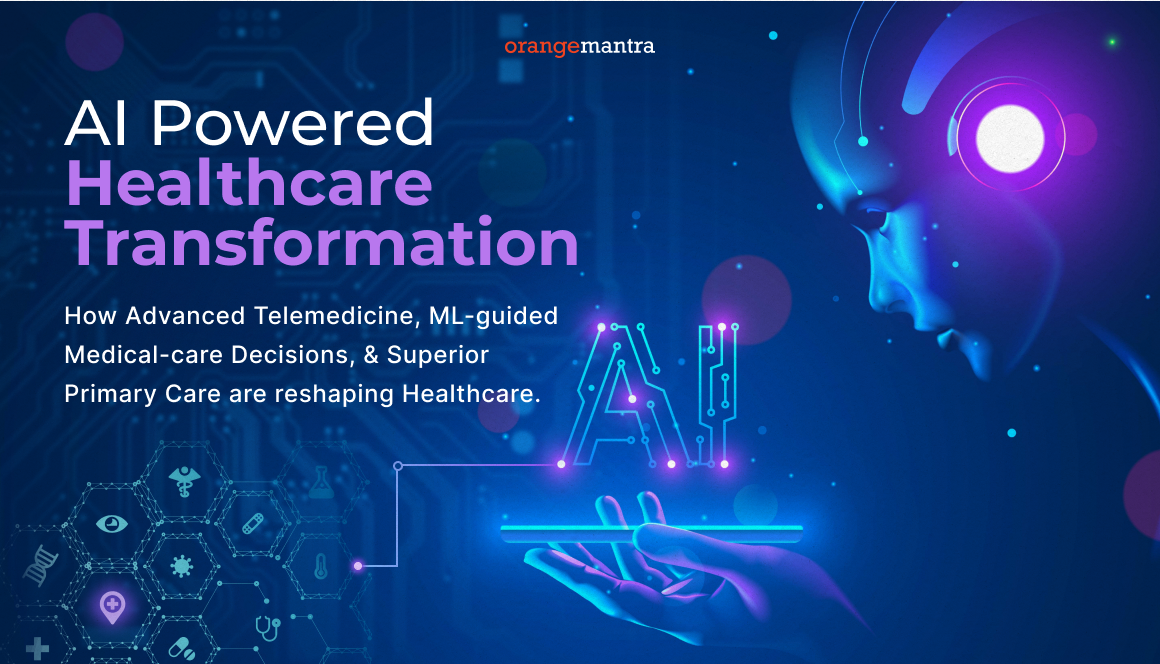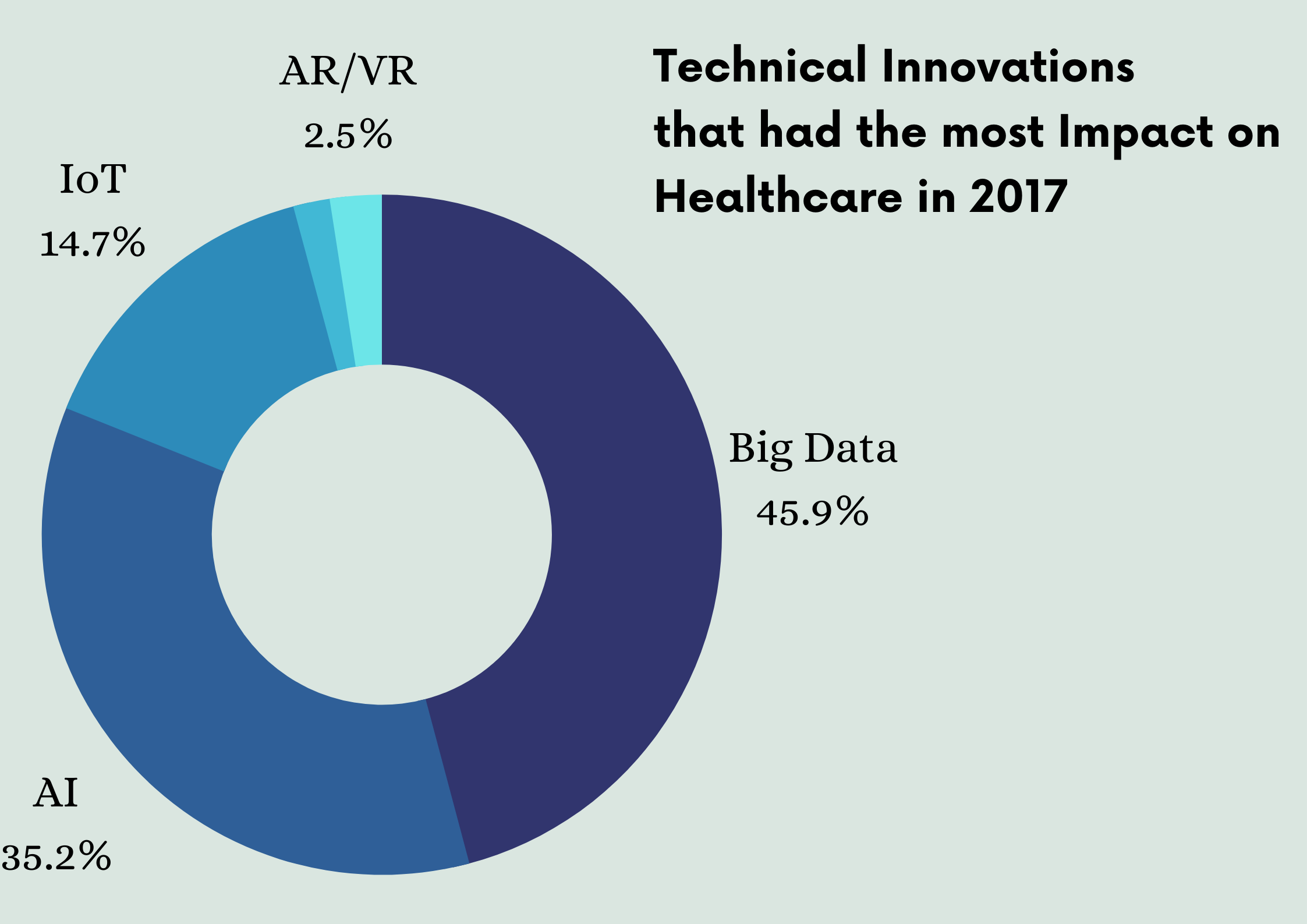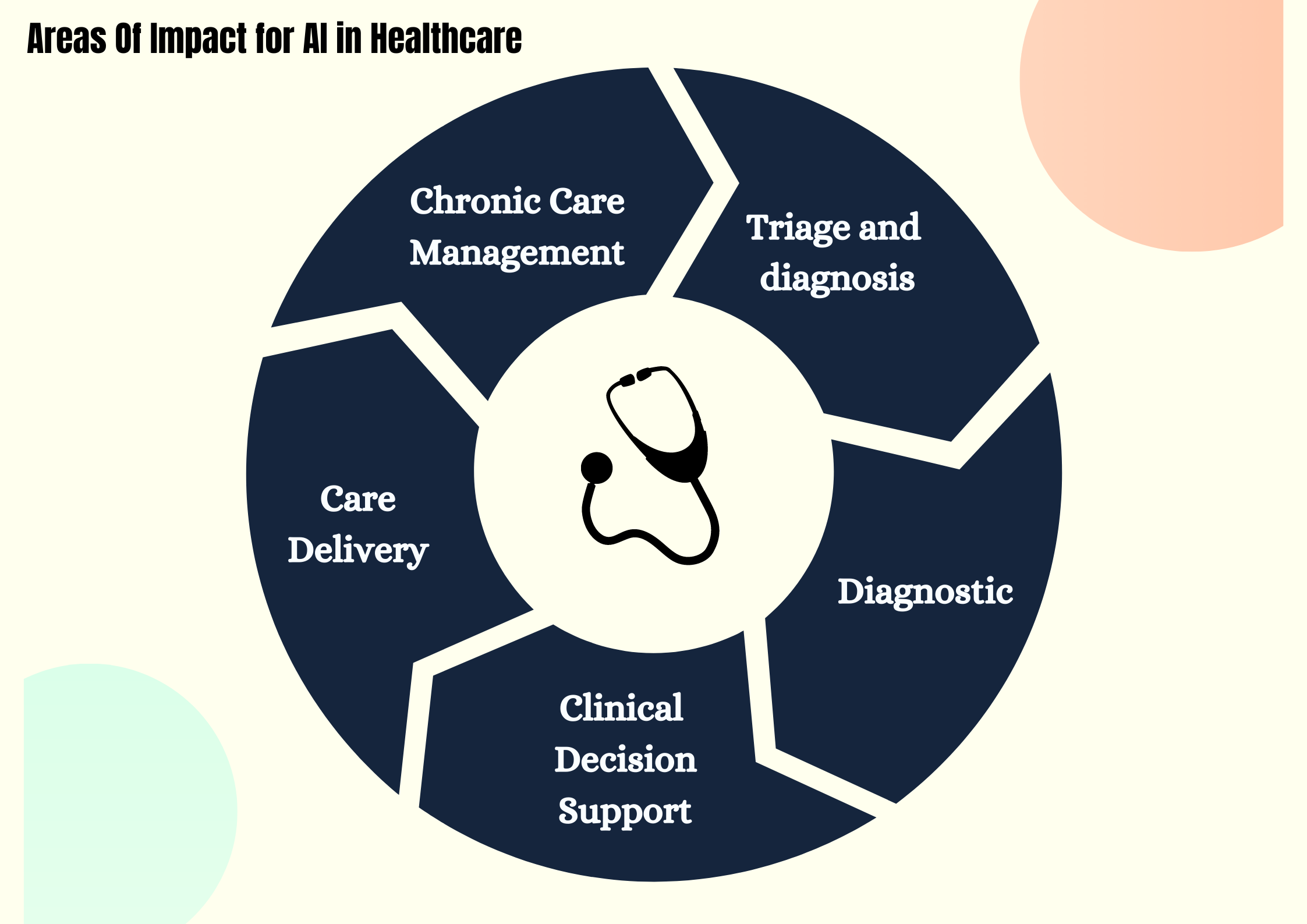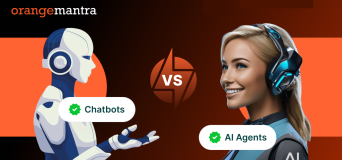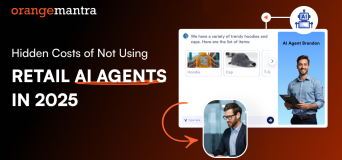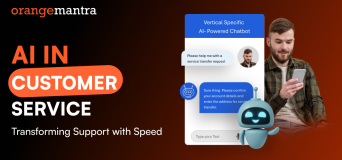Have you been wondering about the seemingly omnipresent healthcare transformations? 2020 only accelerated what was already underway: a tectonic shift in healthcare services—toward digital. Emerging technologies like AI and machine learning have played the most remarkable role in this transformation.
With a massive leap from $6.6 billion in 2021, the healthcare AI market is forecast to reach $95.65 billion by 2028 (according to Global News Wire). That means we’ll see a more dramatic surge of AI dominance in the sector.
Healthcare is the most critical service sector in society. Most of us realized this with crystal clarity during multiple waves of the global health crisis. Emerging tech solutions enabled healthcare providers swiftly cope with the ‘New Normal.’
Artificial intelligence solutions, for instance, can assist doctors, nurses, and other healthcare workers in their daily routines of work. They enhance preventive care and the overall quality of life. Besides, AI solutions produce more accurate diagnoses and treatment plans, and give better outcomes to patients overall. It can also predict and track the spread of infectious diseases by analyzing data from government, healthcare, and entomologists.
Using computers to create a direct interface between technology and humans is a cutting-edge area of research. It has significant applications for patients and doctors alike. Such an approach is critical to maintaining preventive and curative services. Research suggests that it would help the most vulnerable sections of society, including children, older populations, people with chronic disorders, and specially-challenged people.
Let’s look at certain benefits of artificial intelligence in the healthcare industry.
AI-Driven Transformations in Healthcare
Developing Next-Gen of Radiology Tools
MRI, CT scanners, and X-rays offer non-invasive visibility into the inner parts of human body. Artificial intelligence solutions will enable the accuracy and detail enough to replace the need for tissue samples. They dramatically boost precision and speed in diagnosis.
Advancing the Use of Immunotherapy for Cancer
Immunotherapy is one of the most critical paths for treating cancer. By using the body’s immune system to attack the malignancies, patients may be able to beat tumors by immunotherapy. Most patients don’t respond to current immunotherapy options. So, artificial intelligence solutions will help oncologists to get precise and reliable data to identify patient responses. ML algorithms could help create highly complex datasets to invent new ways improve treatment based on the individual’s genetic makeup.
Early Decision Making
Improving healthcare requires data with timely decisions and predictive analytics. Recognition patterns identify patients in severe conditions or deterrent health and act as a reliable predictor. Machine learning development is a conventional health care solution.
Administrative Application
It can be used for a variety of applications in a healthcare management system, including claims processing, clinical documentation, revenue clearances, and medical record management. We can use Chatbots for patient interaction, mental health and wellness, and telehealth.
These applications can be used for refilling prescriptions and making appointments. Insurers can easily verify millions of claims with hospital administration. Options like data matching and claims audits would dramatically reduce false claims. It is a gallant for the hospital management system.
Making New Medicines
Natural language processing led to the development of algorithms to identify drug-drug interactions in medical studies. To address problems, machine learning algorithms have been created to extract data on interacting drugs and their upcoming effects for medical literature.
Algorithms identify drug-drug interaction patterns in user-generated content, especially electronic health records and adverse reports.
Telemedicine
Treatment of patients remotely has shown a rise of the possible increase of telemedicine. Artificial Intelligence solutions can assist in caring for patients distantly by observing their health through sensors. IoT-powered devices allows constant patient monitoring. It also improves observation by identifying issues less distinguishable by humans.
Since the average age has risen due to longer life expectancy, artificial intelligence can be useful for older generations who can’t pay visits to hospitals frequently.
Machine Learning
Machine learning is the most common form of Artificial Intelligence solution in healthcare. Being able to predict the treatment procedures on their genetic make-up and treatment framework is a huge leap forward for health organizations. This is known as supervised learning.
Speech recognition based on Natural Language Processing (NLP) is another major application. Deep learning models have insignificant meaning to human observers and model results may be challenging to delineate without proper interpretation.
It is technique with broad spectrum at the core of many aspects to AI and there are many versions of it.
Clinical Applications & Healthcare Solutions
Primary Care
Primary care has become one of the most in-demand areas for AI-based health technologies. It is based on the socially and scientific methods of technology.AI in primary care has been used for supporting decision making, predictive modelling, and business analytics.
The rapid advances in AI technologies, the general practitioner’s workload view on the role of Artificial Intelligence solutions in primary care has enhanced –focused on administrative and routine documentation tasks. This makes universal healthcare available to all families in a country.
Cardiovascular
Diagnosing patients of the coronary artery through machine learning models give a higher accuracy as compared to clinical diagnostic ability. The AI models enable the earlier detection of cardiac problems without visiting the hospitals. Classification of heart sounds and diagnosing the valvular problems is the growing area of research in AI utilization.
Dermatology
Dermatology has been strongly attached with image processing like –Keratinocytic skin cancer detection can be done from face photographs. It is a natural fit between dermatology and AI. Three main imaging types in dermatology: Micro images, Macro images, and Contextual images. For each modality, AI has shown great progress.
Wearable devices for healthcare solutions:
- Heart rate sensors (Pulse Sensor and Samsung Heart Rate Sensor)
- Oximeters for monitoring the amount of oxygen in the blood
- Sweat meters: to monitor the blood sugar level of diabetic patients
- Exercise trackers (Google Fit, Fitbit)
- Glucose trackers
- Coagulation monitoring
Conclusion
The future of machine learning development companies in healthcare is not whether the technologies will be capable and useful but ensuring their adoption in regular clinical practice. Machine learning is transforming the healthcare sector into a more tech-driven patient-friendly, among other things.
Also, AI will enhance the medical training and care delivery, models. When saving minutes can mean saving lives, machine learning development can be the last and adequate resort. Today, consumers focus on preventive measures and want to get a frequent analysis of their health. Artificial Intelligence solutions in the healthcare sector replace human physical efforts for a wide range of medical tasks.
FAQs
- How is artificial intelligence used in the medical field?
The use of AI-based techniques and automated processes are increasingly common in healthcare. AI is being widely used diagnosis and treatment of patients who require special care. Besides, big data and AI-powered analytics is improving the efficiency of medical research.
2. What is chatbot development?
Chatbot development building a conversational software interface that helps you interact with users or do tasks without the need of a human. Chatbots and virtual assistants are intelligent AI systems that learn as conversations progress. The financial services industry has widely adopted chatbots.
3. How much does it cost to make an AI-based healthcare app?
The cost of developing an AI-based healthcare app depends on your requirements. If you need an app with basic features, the development cost would be comparatively lower. Hire ai developers from OrangeMantra to avail competitive pricing for all kinds of AI-based healthcare solutions.
